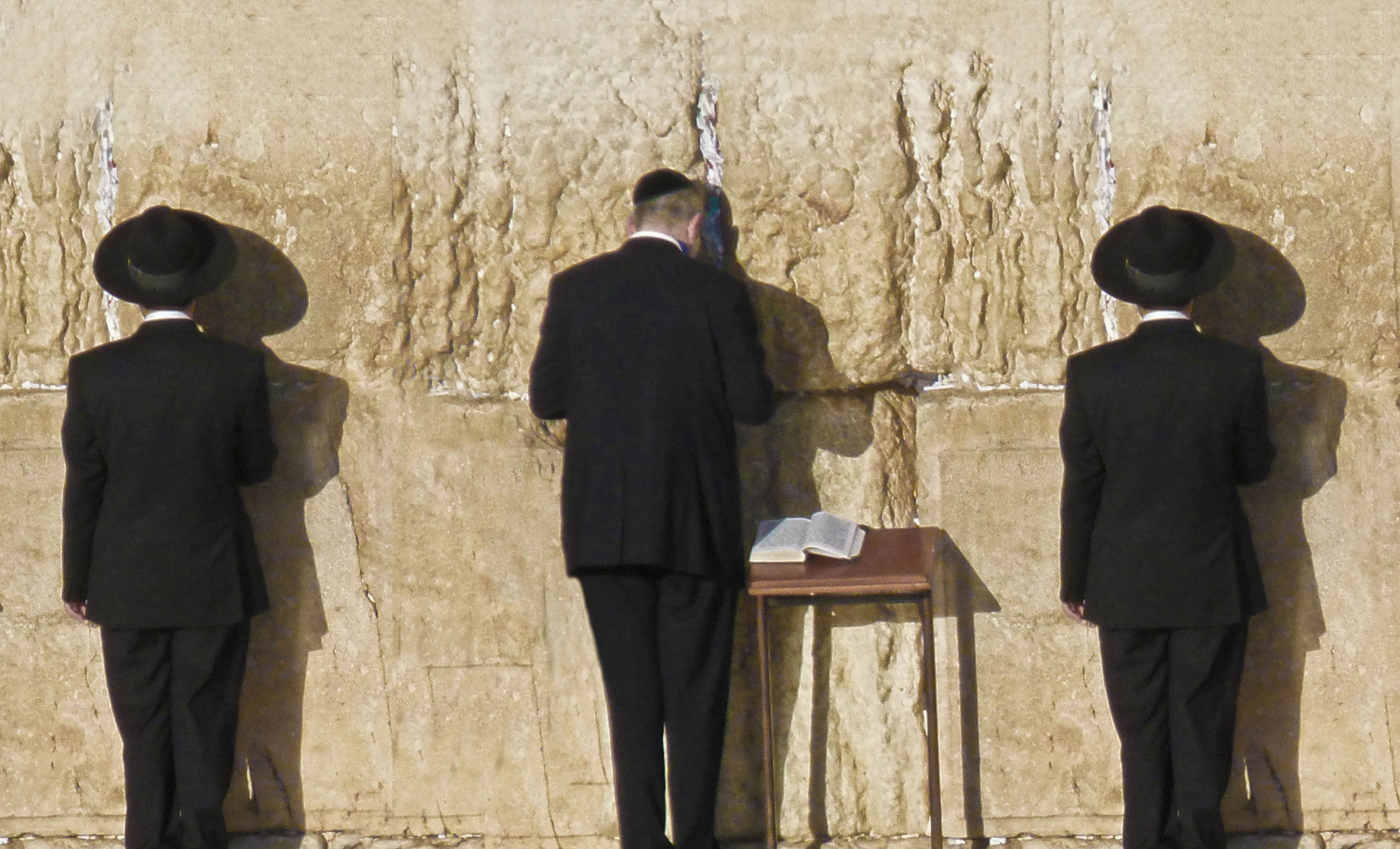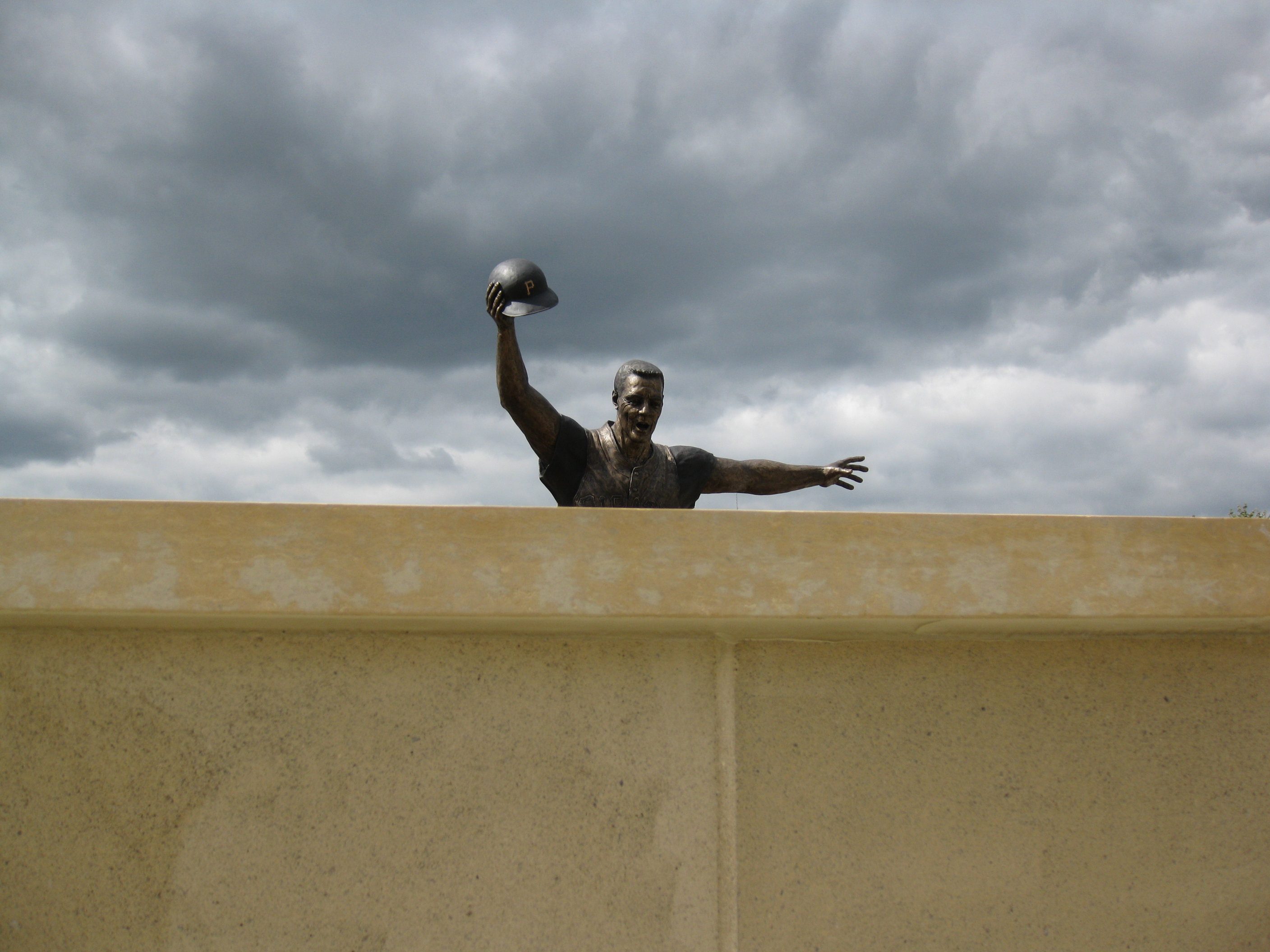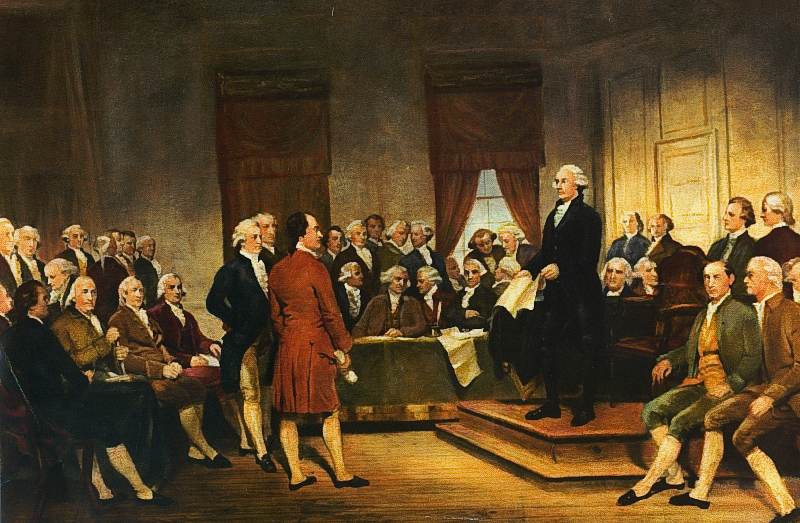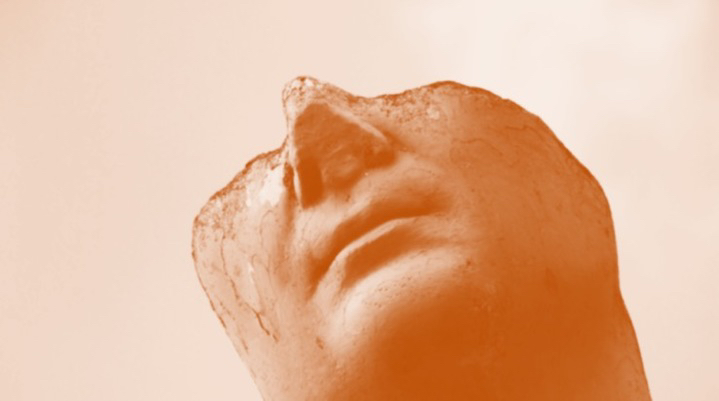Christian Nationalism and Israel

Nations have historically looked to usurp Israel’s place in the Divine plan.
The Jews formed the first nation-state, that is, the first polity defined by common language and religion. The pagan empires were agglomerations of subject peoples; the only empire of antiquity that survives in recognizable form is China, with its 200 dialects and countless ethnicities. Not until Polybius in the second century BCE did it occur to any Greek thinker of note to unite all the Greeks into a single polity, more than 800 years after David established his kingdom in Jerusalem.
Biblical Israel, the “paragon and exemplar of a nation” in the words of Franz Rosenzweig, was the political model that St. Isidore of Seville taught the Visigoths and St. Gregory of Tours taught the Merovingians in seventh century Spain and France, respectively. By accepting the universality of the Church as a higher authority, the petty barbarian chieftains who had inherited the depopulated, devastated Roman Empire were promised the same divine mandate that was bestowed upon the dynasty of David.
From the Church’s efforts to create Europe out of the ruins of the Roman Empire, there emerged a model of dual citizenship: the Christian was both a citizen of a state defined by ethnicity as well as a member of a universal Church that knew neither Greek nor Jew. Repeatedly, the balance between these two dimensions of European citizenship collapsed as each European country in turn arrogated the concept of divine election to its own ethnicity. That is what makes the national aspirations of the Jewish people a matter of existential importance for Christians. By acknowledging that only one nation, namely Israel, is elected in the flesh, Christians exclude the pretensions of other nations to election in the flesh.
In his 2018 book Conservatism: A Rediscovery, Yoram Hazony wrote: “The first premise of a conservative political theory is that men are born into families, tribes, and nations to which they are bound by ties of mutual loyalty.” But there is a mortal leap between families and tribes on one hand and nations on the other, the latter of which requires a central government that in some way represents the interests of diverse and sometimes warring families and tribes.
Very few of the world’s tribes have achieved nationhood. Except for the original Israel, the nation enters history as an adoptive child of the Church. There is no natural process of agglomeration of affinities that turns a family into a clan, a clan into a tribe, and a tribe into a nation. If the minimum precondition for a nation is a common language, it is noteworthy that nearly 150,000 languages have been spoken on Earth since the dawn of man. A tiny fraction of these became nations. Eight hundred thirty-nine languages presently are spoken in New Guinea, none of which will give rise to a nation.
Tribes are transient; nations are, or hope to be, enduring. A nation must embody a vision of continuity and establish institutions that support that vision. That is what the Church gave to the barbarian chieftains of the Dark Ages, in the form of language, administration, and a self-conception as a new incarnation of God’s Chosen People. The agency of this vision is the national state.
The Church’s creation of a new European civilization on the ruins of the Roman Empire, along with the nations that flowered there, was one of history’s great triumphs. But it also had a tragic flaw. St. Isidore and St. Geoffrey were the Bialystock and Bloom of the low Middle Ages: they sold 100 percent of the show to every one of their investors. Each of the European nations decided at some point it was a new Chosen People and God’s agency on Earth. The Thirty Years’ War—still the bloodiest conflict in modern history—was less a Protestant-Catholic religious war than a battle to the death between the France of Richelieu and Mazarin, who believed in the divine destiny of the French nation, and the Spain of Philip IV and the Count-Duke Olivares, who believed that Spain was God’s agent on Earth. Hitler’s “Master Race” was a Satanic parody of biblical election.
The original premise of European—that is, Christian—nationalism was that the nations of the world would coexist under a universal Christian empire, the explicit vision of Aquinas and Dante. Instead, they tore each other to pieces.
The Almost-Chosen Peoples
America is exceptional and unique, the only great polity in the world founded without an ethnic identity. But we are not immune to national idolatry.
Woodrow Wilson’s “Social Gospel” Christianity produced a variant of national election in the United States, which supposedly had the obligation to spread its secularized Christianity to the rest of the world. George W. Bush’s Second Inaugural Address reeked of national election. Bush’s mainline Protestant outlook dovetailed with the neoconservative agenda to export America’s political system to tribal societies. The same impulse tempts many evangelicals, for example, Michael Pompeo, to dream of regime change in China along with the conversion of the Chinese.
Lincoln warned us about this with his quip about Americans as an “almost-chosen people,” the equivalent of saying that a woman is almost pregnant.
The Jewish theologian Michael Wyschogrod has observed that, uniquely among the peoples of the world, the Jews are the People of God as a nationality, whereas Christians must be dual citizens of the People of God and their nation of birth. For that reason alone, a Jewish state must have at least some theocratic elements, although in other respects it is subject to the same law that applies to all states. Wyschogrod explains:
As understood by Christianity, a model of dual loyalty develops. The individual belongs both to a nation and to a religion. He is a Frenchman and a Christian or a German and a Christian. As a Frenchman or German, he is a member of a national community with territorial and linguistic boundaries. But he is also a member of the supra-national church which has no national boundaries…. The church is a spiritual fellowship into which men bring their national identities because they possess these identities but not because such identities play a role in the church. The church thus understands itself as having universalized the national election of Israel by opening it to all men who, in entering the church, enter a spiritualized, universalized new Israel….
Israel refuses to invent the idea of a church that forces men to live in two jurisdictions and to assume two identities: a member of a nation and a member of a church. When such a bifurcated existence is decreed for human life, European wars in which Christian fights Christian, not as Christian but as German, Frenchman or Pole, become possible. That such a church-sanctioned conflict was the rule rather than the exception in the history of Europe was not simply the result of a failure of Christianity. Once religion and nationality are separated, the historical order in which national destinies are realized is almost inevitably de-Christianized.
The residual paganism of Christianized nations has invariably expressed itself in the idolatrous desire to be a Chosen People in the flesh. That is the secret of so-called Christian anti-Semitism: it is not Christian at all, but rather expresses pagan resentment against Israel and jealousy of its unique form of election.
From the Gothic invasion of Italy in 401 to the defeat of the Magyars at Lech in 955 and the conversion of St. Vladimir in 987, the barbarians often entered Christian life not as individuals joining the new People of God but as tribes brought into Christendom through conquest or alliance. Christian universalism triumphed over the ethnocentric impulses of the converted tribes through a supranational political model, from Constantine to Charlemagne and finally until the time of Charles V, when the Christian polity broke up in the Reformation and wars of religion.
Because Christians are a new people called out of the nations, Christian theocracy must be supranational in character. The various political states of Europe were fostered by the Church, which furnished them with language and culture; but those states were subordinated, in some sense, to a Latin-speaking supranational Church that was a senior partner to a universal empire.
No Christian thinker from Augustine through Thomas Aquinas doubted this. Never has the Church taught that the destiny of each ethnic group must be realized independently. On the contrary, Christianity can only flourish within a political model that transcends nationality such that the Christian’s citizenship in the People of God takes precedence over citizenship in a Gentile nation. As a citizen of a universal empire, the individual Christian was subject to a supranational political authority that stood above the Gentile nations and suppressed their ethnocentrism.
Apart from this European model of universal empire, only one other political form has appeared that fosters Christian universality—that is, the nonethnic state embodied in the United States of America. Americans, too, belong to no single ethnicity. If a special grace accords to America, then it is by design rather than accident that America is both the most Christian of all industrial countries and home to the largest Jewish population outside the State of Israel.
Nationhood and Idolatry
Despite the 1,000-year reign of the Christian universal empire, the ethnocentric impulses of the converted tribes never disappeared. Indeed, Christianity gave them a new and, in some ways, more pernicious morphology. As Franz Rosenzweig observed, once the Gentile nations embraced Christianity, they abandoned their ancient fatalism regarding the inevitable extinction of their tribe. It is the God of Israel who first offered eternal life to humankind, and Christianity extended Israel’s promise to all. But the nations that adhered to Christendom as tribes rather than as individuals never forswore their love for their own ethnicity. On the contrary, they longed for eternal life in their own Gentile skin rather than in the Kingdom of God promised by Jesus Christ. After Christianity taught them the election of Israel, the Gentiles coveted election for themselves and desired their own people to be the Chosen People.
As Rosenzweig put it,
Precisely through Christianity the idea of Election has gone out amongst the individual nations, and along with it a concomitant claim upon eternity. It is not the case that such a claim upon eternity conditioned the entire life of these peoples; one hardly can speak of this. The idea of Election, upon which such a claim [upon eternity] uniquely can be based, becomes conscious for the peoples only in certain exalted moments, and in any case is more of a festive costume than their workaday dress…. Still, there sleeps upon the foundation of one’s love for one’s own people the presentiment that someday in the distant future it no longer will be, and this gives this love a sweetly painful gravity.
Rosenzweig understated the significance of his insight, for the Gentile nations too often turned what he called the “festive costume” of ethnocentric election into a military uniform. With the hindsight of the twentieth century’s terrible events, we should look less benignly on the Gentile nations’ longing for divine election.
There is a fine but definite line, to be sure, between the Gentiles’ identification with Israel and their idolatrous desire for election in place of Israel. It is one thing for the Puritans to speak metaphorically of a new Chosen People in a new promised land, and quite another for Joseph Smith to rewrite Scripture in order to place Jesus Christ on American soil. African Americans saw themselves as suffering Israel in Egypt, and their emancipation as a new exodus; that is not the same as James Cone’s eccentric claim that Jesus was black and that blacks are the Chosen People.
Most of the great European nations at some time styled themselves the Chosen People. England’s schism from Catholicism under the Tudors portrayed the British as the Chosen People and their monarch as a new King David. Germany was a latecomer to self-election, but in the twentieth century, the Germans embraced ethnic idolatry in its most horrific form.
Theocracy is toxic for Christian nationalism: once the clergy join the state, it is hard to avoid worshipping the state. America’s concept of separating church and state makes possible a nationalism that is also Christian, as opposed to a Christianity subordinate to national idolatry. Theocracy, however, is possible in a Jewish state. The Jewish religion is grounded in nationhood. Jews are not only permitted but divinely commanded to be nationalistic, in a very specific way. The existence of a nation that is uniquely chosen in the flesh helps Christians avoid the trap of national election, with its tragic consequences in modern history.
The American Mind presents a range of perspectives. Views are writers’ own and do not necessarily represent those of The Claremont Institute.
The American Mind is a publication of the Claremont Institute, a non-profit 501(c)(3) organization, dedicated to restoring the principles of the American Founding to their rightful, preeminent authority in our national life. Interested in supporting our work? Gifts to the Claremont Institute are tax-deductible.
Root, root, root for the electors. If they don't win it's a shame.
Part I: Unfettered reason cannot conserve anything.






